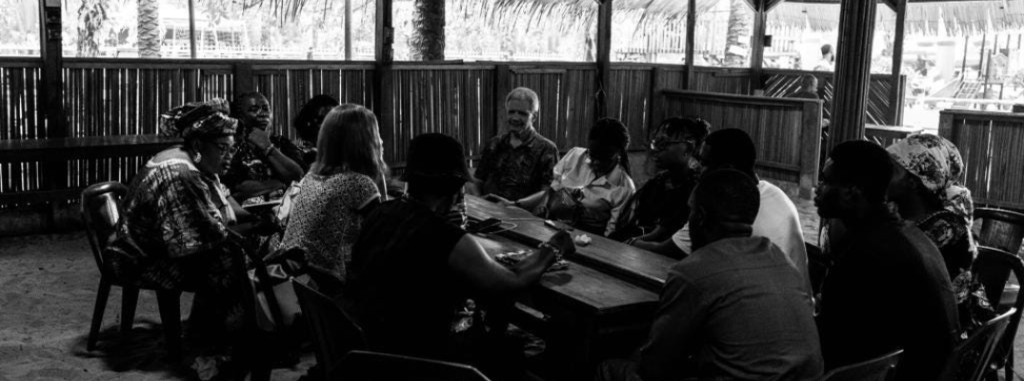If you were to ask me about my greatest fear, it would be the loss of freedom to truly experience the joys of being a human connected to a dynamic and vital natural system. The fear intensifies as the climate crisis and its resulting political, economic, and socio-cultural impacts continue to escalate. I have come to realize that this fear extends beyond those immediate concerns. The true source of fear lies in the inability to recover from these challenges, a reality we witness daily as communities are engulfed by ongoing global poly-crisis. It serves as a stark warning, urging us to radically transform our approach to problem-solving, acknowledging old methods do not yield new results.
Studies on bouncing back after a traumatic event have demonstrated the most effective form of recovery occurs with the support of individuals who create a safe space for us, where our vulnerabilities can be expressed without judgment. Our minds and bodies require the presence of those who can provide such a sanctuary, even if they may not fully comprehend the underlying factors driving our manifestations. Through my work at The Ecoanxiety Africa Project, I have facilitated numerous discussions and safe spaces, bringing together people from diverse backgrounds, nationalities, and age groups, to explore emotional aspects of environmental issues. The common thread in these conversations is the importance of validation and having others hold space for our voices. In a communal sense, societies with high levels of trust tend to rebound more effectively from adversity because individuals are deeply committed to their collective identity.
Resilience, in essence, cannot be built in isolation. It resembles a forest composed of countless interconnected microsystems, which cannot exist as a forest without each specie present. Resilience extends beyond the concept of adapting to a changing environment; it requires a harmonious coexistence and synchrony with our surroundings. It enables us to catch ourselves at precise moments and prevent entropy.
Currently, we find ourselves in a society that values individualism, where competition within capitalist markets, materialism and urban arrangements foster this habit. I recall moments while growing up in southwest Nigeria, where communal love was exemplified by neighbors helping each other with chores and sharing meals during significant events and festive seasons. However, we seem to have lost touch with that collective spirit. While some may argue that society owes us nothing, I beg to differ. Society owes us our fundamental human needs, respect, and security.
Social collectivism is not a novel concept. Throughout history, communities have relied on collective strength to overcome various crises. From tribal societies cooperating for survival to nations uniting during times of war, collective action has proven its effectiveness in the face of adversity. Today, in an increasingly interconnected world, harnessing the power of social collectivism is more critical than ever before. The strength of collectivism lies in its ability to foster solidarity, mutual support, and shared responsibility. When individuals join forces for causes we deeply care for, the combined efforts create a formidable force capable of weathering storms and finding innovative solutions.
To harness this power of community and care effectively, We need to celebrate and honour diversity. By involving individuals from diverse backgrounds and encouraging unique lived experiences, we become more robust and better equipped to address a wider range of challenges. We also need to encourage self-agency and leadership, resilience is built on individuals recognising and tapping into their power, which in turn fosters strength, and a sense of ownership. When we do this in terms of the environmental crisis, people begin to see themselves as a part of the earth’s ecosystem and take collective responsibility for taking care of the planet, and consequently themselves.
But we can’t achieve this without help from governmental organisations, individuals under the rule of law in society have relinquished a portion of their agency and power to these institutions in return for stability and security. The current poly-crisis is evidence that these institutions have failed to take their job seriously and even play a part to encourage discord. Our government must respond to these crises with urgency, planning localised sustainable policies to support individuals and communities to just not survive but thrive in their full being.
Written by Ayomide Olude

